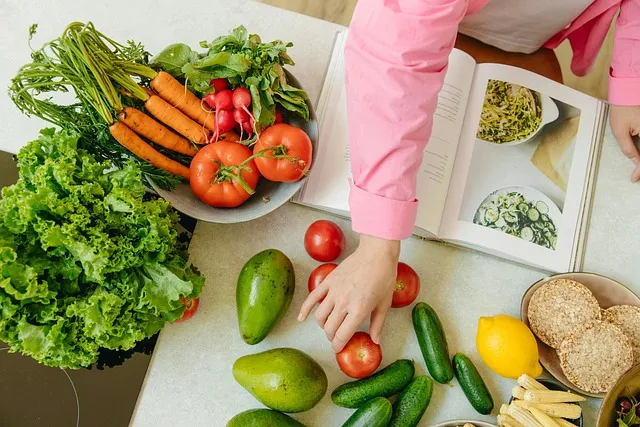Ever felt a sharp, tight pain in your chest and feared the worst? That sudden jolt of discomfort can make anyone think it's a heart attack. But sometimes, it's just gas. Yes, gas trapped in the chest can mimic something as scary as a cardiac event. It’s painful. It’s scary. But it’s usually not life-threatening.
If you've had bloating and chest pain or that burning pressure that won’t let up after eating, you're not alone. Various studies show that around 15.9% of adults report bloating at least once a month, with women at about 19.2% and men at 10.5%. It’s not rare, and it’s not always about the food. Sometimes it’s about which foods, how fast you eat, or even your stress levels.
So, what can you do when it feels like gas is punching your chest from the inside? You start by knowing which foods work like natural support. In this post, we’ll break down the top foods to relieve chest gas, how to get instant relief for gas in the chest, and go beyond basic tips. These aren’t random hacks; they’re based on biology, digestion science, and natural practices that really work.
Chest Pain: Is It From Acid Reflux, Gas, or a Heart Attack?
Chest pain isn’t always one thing. It can be acid reflux, a gas bubble, or, in worst cases, heart trouble. If the pain is sharp and in the center or left side, it’s scary. But how do you tell the difference?
Gas pain in the chest treatment starts by spotting the signs. Gas tends to come with bloating, burping, or indigestion. It can hurt like a stab or burn like acid. But it often gets better if you move, stretch, or pass gas.
On the other hand, acid reflux, also known as GERD, causes a burning feeling that moves upward. It’s often triggered by spicy food, big meals, or lying down after eating.
Still, indigestion and chest tightness should never be ignored, especially if they last more than a few minutes. You can try chest gas home remedies, but get help if it stays, comes with short breath, or feels like pressure on your chest.
10 Foods To Relieve Gas Trapped In The Chest Quickly
You don’t need a long list of meds. The answer is often in your kitchen. These 10 foods act as natural remedies for gas in the chest and work fast.
1. Celery: Crunch Your Way to Calm
Celery is full of water and potassium. Both help flush out sodium and reduce water weight. It’s light on your gut and perfect if you're bloated. The fiber in it also keeps things moving.
Cook it a bit to make it easier on the stomach. Too much raw fiber can backfire. But once softened, celery acts like a sponge, soaking up the toxins and letting your system breathe.
Bonus: it’s one of the most affordable home remedies for trapped gas.
2. Apple Cider Vinegar: Gut Stimulator
ACV isn’t just for salads. It boosts stomach acid and digestive enzymes. When your gut works better, gas doesn’t sit there.
Mix 2 teaspoons in warm water. Sip it slowly. This technique works best before meals. It resets your digestive rhythm and can give instant relief from gas in the chest.
ACV also balances gut pH, useful if the trapped gas is caused by low acid or bad bacteria.
3. Banana: Potassium Fixer
Bananas are rich in potassium. That mineral keeps sodium in check, reducing bloat. But it does more — bananas contain resistant starch. That means they feed the good bacteria and clean out the colon naturally.
Slightly green bananas are better. Less sugar. More fiber. Better gas control.
Go easy, though, too ripe and they might do the opposite. Use in moderation, maybe slice into a smoothie with Greek yogurt for a bloating and chest pain remedy.
4. Ginger: Fast-Acting Bloat Buster
Ginger has been used in medicine for centuries. It's not hype. Its compounds — gingerols and shogaols- help your stomach empty quicker and stop fermentation that leads to gas.
Chew fresh ginger, or steep in hot water. Add lemon and honey for taste. This is one of the strongest natural remedies for gas in the chest that works even in acute cases.
Bonus tip: chew on candied ginger if you're on the go.
5. Clove: Ancient Digestion Aid
This spice doesn’t just flavor curries. Clove oil promotes digestive enzymes. Just chew a couple of cloves post-meal. Or mix clove powder with cardamom.
It relaxes the stomach lining and reduces cramping. That means less gas buildup and smoother digestion. Ideal for gas pain in the chest treatment if you've overindulged or eaten too fast.
6. Spinach: Magnesium Magic
Spinach is full of magnesium, and that mineral does three big things:
Calms gut muscles.
Softens stool.
Helps enzymes break down food.
All that means fewer gas pockets. One cup of cooked spinach gets you nearly 39% of your daily magnesium. You can steam it, toss it in soups, or blend it.
Want a fast hack? Add magnesium powder or greens powder to water for food for gas and bloating relief in minutes.
7. Herbal Teas: Soothe and Settle
Certain teas like chamomile, peppermint, fennel, and lemon balm reduce inflammation and ease digestion.
They work in two ways:
They relax stomach muscles.
They improve bile flow.
Drink them slowly, preferably warm. Don't gulp. These teas are top-tier chest gas home remedies, especially if your issue is due to stress eating or overeating.
8. Cucumber: Cool and Clean
Cucumbers have quercetin, a plant compound that fights inflammation. That means if your gas is tied to gut flare-ups or sensitivities (like SIBO or IBS), cucumbers can help.
They're 96% water. That helps flush excess sodium and eases water retention. You can snack on slices or add them to infused water.
Gas trapped in the chest relief can be as simple as munching on this crisp veggie post-lunch.
9. Fennel Seeds: Indian Kitchen Staple
After meals, chew fennel seeds. This isn’t just tradition — it works. These seeds push food through your gut faster, prevent fermentation, and reduce burping.
Try steeping a teaspoon in boiling water, cool it, and sip slowly. Great for indigestion and chest tightness that lingers after dinner.
10. Yogurt: Good Bacteria Power
Yogurt has probiotics. These help balance the bacteria in your gut and improve digestion over time.
To enhance its effects, add black salt and toasted cumin. You can also make a yogurt smoothie with apples or spinach for a two-in-one gas-busting drink.
This is ideal for folks with chronic bloating and chest pain issues. Long-term use works best.
Foods and Their Gas-Fighting Benefits
Food Item | Key Benefit | Best Form to Consume |
Celery | Reduces bloating, high in water | Steamed or lightly cooked |
Apple Cider Vinegar | Stimulates enzymes, balances gut pH | Mixed with warm water |
Banana | High potassium, controls water retention | Slightly green |
Ginger | Speeds digestion, anti-inflammatory | Tea or raw slices |
Clove | Boosts enzymes, reduces stomach pain | Chewed or mixed with cardamom |
Spinach | High in magnesium, softens stool | Steamed or in smoothie |
Herbal Teas | Relaxes gut, reduces inflammation | Peppermint, chamomile, fennel |
Cucumber | Anti-inflammatory, reduces water retention | Raw or infused in water |
Fennel Seeds | Aids digestion, cuts down gas production | Chewed or tea |
Yogurt | Probiotics restore gut balance | With black salt and cumin |
Home Remedies and Lifestyle Tweaks
Apart from food, a few small tweaks can give gas trapped in the chest relief fast:
Walk for 15 minutes after eating. It boosts digestion.
Avoid tight clothes that compress your belly.
Drink warm water, not cold. Cold water stiffens digestion.
Don’t talk while eating, you swallow air.
Eat smaller portions more often.
Try belly massage in a circular motion or yoga poses like "Child’s Pose" or "Wind-Relieving Pose" for home remedies for trapped gas beyond the kitchen.
Conclusion
Nobody wants to admit they’re dealing with gas, especially when it shows up as chest pain. But it happens. It’s common. And it doesn’t have to ruin your day.
By eating the right foods, avoiding gut-irritating habits, and trying these chest gas home remedies, you can find relief from gas trapped in the chest naturally. You don’t need to pop pills or panic. Start with your plate.
Next time your chest feels tight, reach for celery, sip some ginger tea, or chew fennel. And remember: your gut talks to you, all you need is to listen.
वारंवार विचारले
What can I eat if I feel gas in my chest at night?
Stick to light, low-fat meals. Go for herbal teas, steamed spinach, or cucumbers. Avoid dairy, beans, or carbonated drinks at night.
Can stress cause gas pain in the chest?
Yes, stress affects gut motility. It can slow digestion and trap gas, especially if you gulp air or eat fast during anxiety.
Is carbonated water safe for bloating and chest gas?
Not really. It adds air to your gut and may worsen symptoms. Try warm water or herbal infusions instead.
How long does trapped chest gas usually last?
Mild gas may pass in minutes. But depending on food and gut condition, it can last hours. Lifestyle and food changes help reduce the duration.
Are probiotics effective for chest gas relief?
Yes, over time. They balance gut bacteria. Pick high-quality yogurts or supplements with Lactobacillus and Bifidobacterium strains.

लिहिलेले







